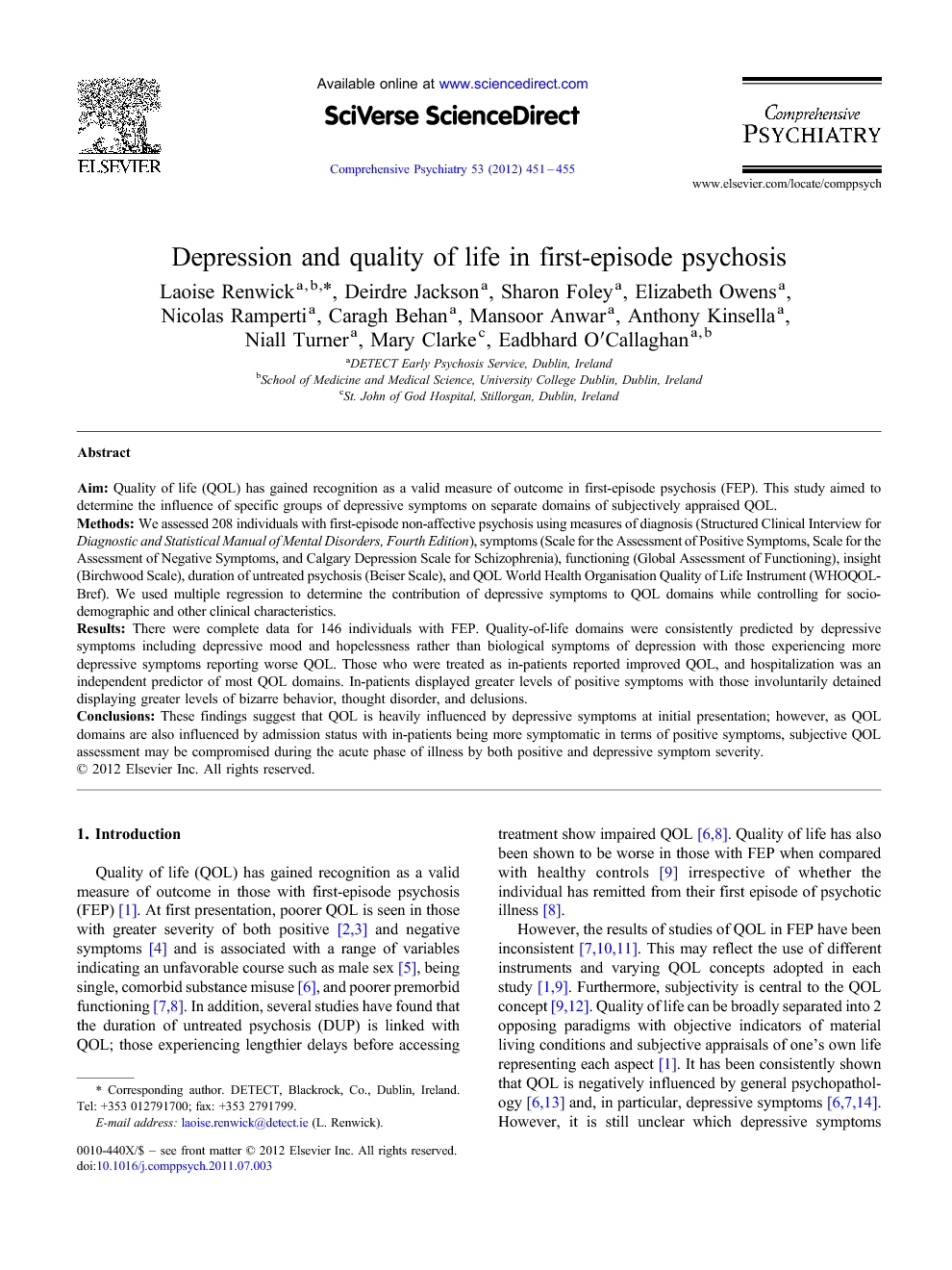ترجمه فارسی عنوان مقاله
افسردگی و کیفیت زندگی در بیماران با روان پریشی اپیزود اول
عنوان انگلیسی
Depression and quality of life in first-episode psychosis
| کد مقاله | سال انتشار | تعداد صفحات مقاله انگلیسی |
|---|---|---|
| 31892 | 2012 | 5 صفحه PDF |
منبع

Publisher : Elsevier - Science Direct (الزویر - ساینس دایرکت)
Journal : Comprehensive Psychiatry, Volume 53, Issue 5, July 2012, Pages 451–455
ترجمه کلمات کلیدی
افسردگی - کیفیت زندگی - بیماران با روان پریشی اپیزود اول -
کلمات کلیدی انگلیسی
Depression .quality of life .first-episode psychosis.

